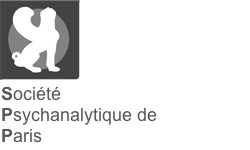|
Résumé :
|
European psychosomatics, as a branch of psychoanalytic psychopathology, has existed for almost two centuries, but it is a constantly moving body of thought. From epistemology to aetiology, its questions are still evolving and concern the debate between the psyche/soma dualism and the monistic alternative, but also the psychic meaning that is to be attributed to somatic symptoms. In France, the discipline has not had its last word, for it is constantly seeking to position itself as a field of research and clinical practice within psychoanalysis. However, it still needs to affirm itself and open itself more towards other branches of knowledge, such as medicine, neuroscience, or the social sciences. In this context, are the processes of somatisation still to be thought of as boundary objects for psychoanalysis? On what epistemological, theoretical, methodological, and practical conditions is the psychosomatic question still or at last possible? In particular, is it possible to reintroduce the question of the “meaning” of the somatic phenomenon in order to breathe new life into it, without returning, however, to the symbolic interpretation of symptoms, while preserving the subjectivising approach of psychoanalysis and its logic of interpolation? Can we speak in the human sciences of a truly psychosomatic revolution in the image of psychoanalytic advances?
|





